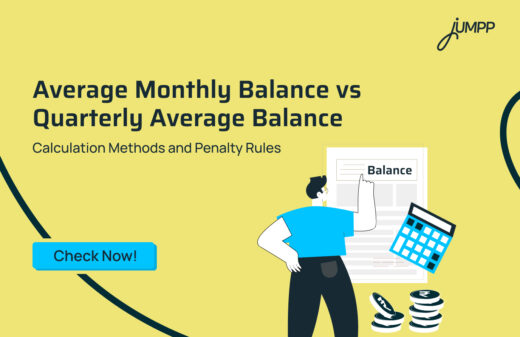First Salary Guide: How To Spend, Save, and Invest The Right Way

Whenever you watched your parents buying things for you while growing up, whether it was a new pair of shoes, a birthday cake, or a trip that you said you wanted to join, you quietly promised yourself that one day, when you received your first salary, you would buy them everything they ever gave you. It was never about the price. It was about the feeling of giving back.
Finally, when that day arrives, you wonder, what do I do with this? How much should I save? What should I buy for my parents? Should I just enjoy it?
So before you rush to celebrate, take a moment.
Let’s explore how to manage that first salary in a way that celebrates your freedom without compromising your future.
What To Do With Your First Salary
Your first salary is a unique opportunity to lay a strong financial foundation for your career ahead.
The focus should be on building disciplined habits and securing your future through good financial goals, without losing sight of the joy of your first paycheck.
1. Create Your Financial Foundation
Celebrate responsibly: Your first salary deserves to be celebrated, but it does not have to be extravagant.
You must take your parents out for dinner, buy something small that holds meaning, or do something memorable with your loved ones.
Pay your parents: In our culture, many people give their first salary to their parents.
Whether as a gift or a contribution to the household, it is a gesture of gratitude and respect.
Prioritise needs and clear debt: If you have student loans or any outstanding dues, you can start addressing them early.
Clearing high-interest debt like education loans or credit card bills can save you from a future burden!
2. Develop Healthy Money Habits
Automate your savings: You can follow the principle of pay yourself first.
The moment your salary is credited, you can move a fixed percentage (at least 20%) into a separate savings account. This ensures you save before you spend.
Build an emergency fund: Start small but stay constant. You should aim to eventually save enough to cover at least three to six months of your basic living expenses.
Create a budget: You need to track every rupee for the first few months.
You can use the 50/30/20 rule as a starting framework.
Here’s how it works:
- 50% of your salary goes towards needs. This would include your daily essentials like rent, groceries, transport, and bills.
- 30% goes towards wants. This basically includes dinners, subscriptions, weekend outings, and shopping.
- 20% goes towards savings and investments. These could be options like building an emergency fund, saving for your solo trip, saving for your parents’ anniversary, starting a SIP, or paying off small debts.
You can use a free expense tracker app to manage everything in one place.
3. Start Investing Small and Smart
Begin with SIPs: Systematic Investment Plans in mutual funds are one of the easiest ways to start investing early. You can begin with as little as ₹100 a month.
Buy term and health insurance: As soon as you begin earning, protect yourself and your family.
A term plan ensures your loved ones are secure, and a health plan protects your savings from unexpected medical expenses.
Avoid high-risk investments: The first salary often brings curiosity and temptation.
You should avoid putting your money into risky instruments like cryptocurrencies or trading platforms unless you have thoroughly researched them.
Your first salary will always hold emotional value. But if you manage it with thoughtfulness and discipline, it becomes the foundation for everything you will build later.
Do’s and Don’ts With Your First Salary
| Do’s | Don’ts |
| Make a simple budget. Note what to pay, what to save, and what you can spend. | Spend on luxuries That new phone or watch can wait. Don’t start overspending early. |
| Buy something for your parents Even a small gift shows love and thanks. | Forget to save for yourself Keep a part of your salary just for your savings. |
| Start an emergency fund Save a little every month for unexpected needs. | Take new loans Don’t buy things on EMI or credit cards just to feel good. |
| Begin with small investments Start a SIP or recurring deposit, even if it’s ₹1,000 a month. | Ignore your money Check your budget and savings every month. |
| Get health insurance Start young. I’s cheaper and safer for the future. | Delay paying off debt Clear your loans early and save on interest. |
Want to make the most of every paycheck?
Check out our complete guide on how to save money from salary — learn smart budgeting techniques, savings strategies, and tips to grow your income without compromising your lifestyle.
How To Manage Salary
Both managing a regular salary and handling your first salary involve creating a financial plan, but they have different priorities.
Your first salary is about establishing basic financial habits. But managing a regular salary is about refining and scaling those habits for long-term growth, stability, and wealth creation.
1. Optimise Your Budget
Refine the 50/30/20 rule: As your income increases, you should modify your budgeting ratio.
For instance, you can shift from saving 20% to saving 30% or even 40% over time. The goal is to use your hard-earned money in a smart way.
Control lifestyle inflation: One of the biggest financial traps is lifestyle creep.
Every time your income increases, you start spending more on things you do not really need. You need to stay conscious of this.
Review subscriptions and bills: You need to sit and analyse your recurring expenses every few months.
Don’t forget to keep track of your streaming services, memberships, and utility bills. Small cuts can create big savings when done consistently.
2. Strategically Invest for Growth
Diversify your portfolio: You need to move beyond basic savings and fixed deposits.
Explore a balanced mix of instruments based on your risk profile. This can include equity mutual funds through SIPs, security-backed bonds, government schemes like NPS, and tax-saving options such as ELSS, LIC, or ULIPs.
Increase investment amounts: You should use your salary increments, bonuses, or side income to increase your monthly SIPs or investment contributions.
The power of compounding rewards consistency and gradual growth.
Plan for retirement early: Even though retirement may seem far away, the earlier you start, the easier it becomes.
Investing in a dedicated retirement fund now can create financial comfort later through compounding returns.
3. Manage and Leverage Debt
Pay down high-interest debt: You should always prioritise clearing high-interest debt, such as credit cards or personal loans.
The longer you delay, the more interest you pay.
Use debt responsibly: Once your income stabilises, you can consider using good debt to create assets.
For example, a home loan can help you build property value while offering tax benefits.
Maintain a strong credit score: You need to remember that it is important to always pay EMIs and credit card bills on time.
A good credit history helps you access better interest rates and financial opportunities in the future.
Final Thoughts
Your first salary is the beginning of independence. Your regular salary is the test of consistency. Both are milestones that shape your financial future in very different ways.
The first teaches gratitude and self-control. The second teaches planning and growth. When you combine both, you build a relationship with money that is steady, balanced, and forward-looking.
Spend your first salary with joy, manage your regular salary with purpose, and let both remind you of how far you have come and how much further you can go.
How to Manage Your First Salary- FAQs
Your first salary is the initial income you earn from your first job. It represents a significant milestone, symbolising the beginning of your professional career and financial journey.
A good first salary depends on several factors, including industry, job role, location, and individual circumstances, which makes the concept subjective. In India in 2025, a package of ₹3–7 LPA is considered good for freshers.
The key to managing your first salary lies in creating a clear budget and following a structured rule, such as the 50-30-20 rule of budgeting.
To be in the top 1% income bracket in India, you need to earn over ₹53–54 lakh annually, with the average income for this group around ₹54–55 lakh. Their average net worth, however, is much higher.
You can use it to repay any existing debt, start an emergency fund, purchase health insurance, or make your first investment through options like SIPs or government-backed savings schemes.
The 7-3-2 rule refers to a wealth-building strategy highlights the power of compounding. It suggests that with disciplined and consistent investing, you might take seven years to earn your first million or crore, but only three years to reach the next, and just two years to achieve the third.






